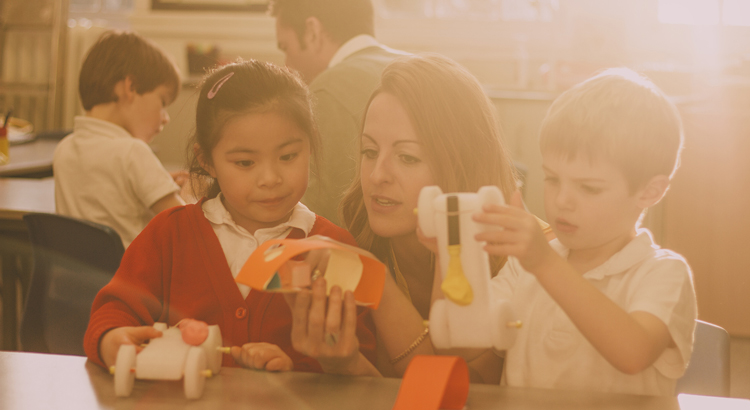This is part of a series of posts from nominees for our LifeChanger of the Year educator recognition program. We meet scores of fascinating LifeChangers every year who have interesting perspectives to share about children, education and life.
What’s love got to do with it? Everything.
The history of No Child Left Behind dates back greater than 50 years. It was born from the U.S. Supreme Court decision that outlawed racial segregation in public schools and provided an opportunity of equality in the public education system.
In 2002, President Bush signed the No Child Left Behind Act of 2001, creating a public education system that engages inclusive and equitable learning. Due to the implementation of this act, the Individualized Educational Program (or IEP) is used to determine how student barriers can become a bridge to student success. Students now have the opportunity to be a part of the big picture, which is to engage in and celebrate learning without limits.
Although this act puts in place a system of accommodations and modifications to support the learning for students who have been identified as having learning challenges, there are still students whose learning blocks go unidentified by our current system.
A Google search finds a list of accommodations that includes audio assisted learning, designated reader, visual presentation, calculators for factoring and other supports. Modifications may include shortened lessons, adjusted grading standards, or alternative projects.
But the things that aren’t on the list are the most vital of all, which is a heaping dose of outwardly spoken, openly shared “Love.”
As a literacy educator, the vast portion of the students I teach have been identified as having some type of academic challenge. I have been blessed with the ability to encourage my students to reach their academic potential by providing accommodations and modifications as described in their IEPs.
Seventh and eighth grade students are at higher risk of needing more than academic accommodations and modifications. Many pre-teen to teen-age students can suffer from social identity crisis, often at school and at home. Many students are often identified as having behavior challenges. Cries for specialized attention may be demonstrated in frequent class disruption or rebellion at home.
There may be patterns to the signs and signals of students who may be reaching out. They:
-Don’t want to attend school
-Lag when preparing for school
-Require behavior to be redirected
—Lack interest in participating in school or home activities.
Although the IEP as we know it does not list a remedy for this type of learning block, as parents and educator we are encouraged to take note and notice these social extremes or passiveness, and provide a heaping dose of a different type of accommodation or modification. Many of these students long for attention that can only be satisfied by praise and openly expressed love.
Stop, Look, Notice and Share. In addition to inquiring about academics, seek knowledge about their social interest and activities. Model conversation that is more specific in nature. Rather than ask “how was your day,” ask what was the best part of your day. Then follow through with open ended conversation that allows the student to express his/her thoughts and opinions.
Show interest and engage by sharing a relatable experience. The hope is to develop a relationship of trust. Open a door to an accommodation/modification that says “you” matter, “you” are loved. It’s not uncommon for students to become stressed through the struggle of often being told that you are a big boy or girl, yet as parents we impose safe social limits often deemed unfair.
Love is limitless. Speak it, and share it, as often as possible.
Learn more about Zenobia Pressley on her LifeChanger of the Year profile.
TC100537(0418)3
